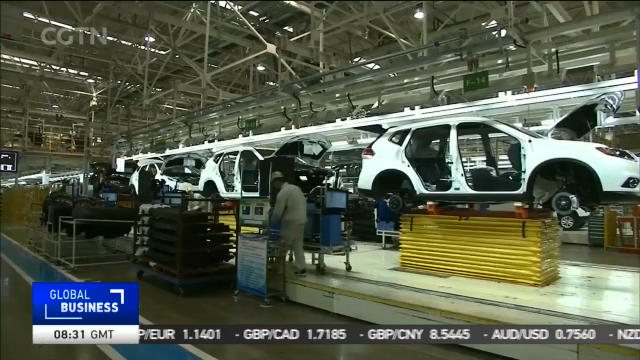
17:01, 24-May-2018
China-Germany Ties: Overseas carmakers cut prices following China's auto tariff cut plan
03:08

Before Merkel's visit, Germany had already received a present from the Chinese government. China on Tuesday said it would cut the tariffs on imported cars to 15 percent from 25 percent, and also on imported car parts. Industry insiders point out that the biggest winner will probably be German manufacturers. Ying Junyi has this story.
China imported 1.25 million vehicles last year, accounting for some 4.2 percent of China's total auto sales. According to the Financial Times, a third of these imported cars were built in Germany. Even among vehicles imported to China from US plants, many were German brands. According to figures released by the China Automobile Dealers Association, of the top ten favorites among imported brands in China, half are from Germany.
LI WANLI FORMER DEPUTY INSPECTOR, DEPT. OF INDUSTRIAL POLICY CHINESE INDUSTRY AND INFORMATION TECHNOLOGY MINISTRY "At the beginning of China's opening up forty years ago, manufacturers from the US and Japan had little faith in China's automobile market, and Volkswagen came in first. I think the cooperation between China and Germany will not be limited to just manufacturing. In the future I see more cooperation opportunities in the development of new energy vehicles."
After the new tariff cuts, China's vehicle import duties will be lower than the average for developing countries. We talked to carmakers not only from Germany but also from the US and the UK, and all expressed their enthusiasm about the market here. Just today, Volvo announced price cuts for its seven models sold here, ranging from 10,000 to 100,000 Renminbi. The tariff cuts were in addition to China's unveiling a plan last month to phase out equity caps for automotive joint ventures. The Shanghai government announced at the end of last week that Tesla Motors had registered a wholly owned company in the city. Experts believe the additional new liberalization measures will drive further innovation by Chinese automakers in the long run.
ZHANG SHULIN FORMER SECRETARY-GENERAL, CHINA ASSOC. OF AUTOMOTIVE MANUFACTURERS "The import tariff cuts, together with the waiver of equity caps for auto joint ventures, will push Chinese automakers to become stronger. The pressure will also drive innovation in our automobile companies by creating a new competitive environment."
YANG ZHONGNING INVESTMENT ADVISOR, INDUSTRIAL SECURITIES "In the long term, uncompetitive auto companies or companies which have a weak market foundation will see their market share reduced by these opening policies, as more imported vehicles enter the Chinese market. Some companies in the auto sector rose sharply after the announcement, whereas some performed in the lower range in which they have been performing for the past year. That is all to say, the auto sector has become more and more market-driven and diversified."
Import tariffs on 79 types of auto parts will also be slashed to 6 percent current levels ranging from 8 to 25 percent. Yang points out this is not particularly significant, however, as the industrial chain for China's auto parts is relatively comprehensive and the need for imported auto parts is thus relatively low. Ying Junyi, ICS for CGTN, Shanghai.

SITEMAP
Copyright © 2018 CGTN. Beijing ICP prepared NO.16065310-3
Copyright © 2018 CGTN. Beijing ICP prepared NO.16065310-3